NZ Labour delivered a crushing defeat as National triumphs
Christopher Luxon becomes New Zealand’s 42nd prime minister, in a coalition government as Kiwis deserted Labour in droves for the centre right.
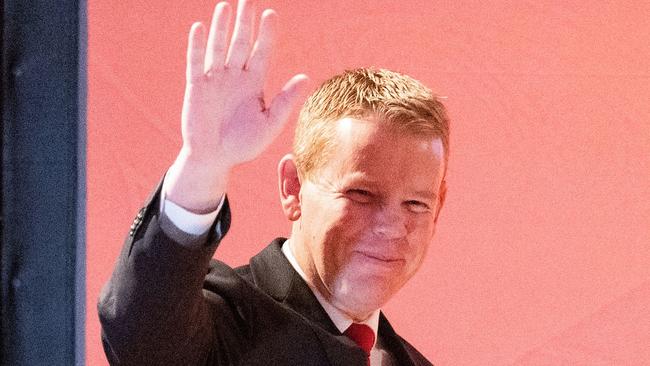
New Zealand’s governing Labour party has suffered a resounding defeat, with Kiwis deserting in droves to vote for a conservative coalition.
The party saw the number of Labour seats in parliament almost halve, from 65 to just 34 - a similar crash that National experienced in 2020.
With 80 per cent of the vote counted, National, led by Christopher Luxon, had 39.7 per cent of the vote and was on course for a coalition government with the libertarian ACT party, which won 9.1 per cent.
However thanks to the peculiarities of New Zealand’s MMP (proportional voting) system, the two parties will probably have to do what they wanted to avoid and invite the populist NZ First led by maverick politician Winston Peters into government.
The result gave the two parties 61 seats between them - a majority in the 120 seat parliament - but a surge of support for Te Pati Maori meant the total number of seats in parliament rose to at least 121, giving National and ACT the slimmest of margins.
Special votes numbering around 500,000 are also still to come, which could change the balance for or against National.
It could mean weeks of negotiations with the notoriously crafty Mr Peters - who is firmly back in parliament with eight seats - before New Zealand knows what shape its new government will take.
Regardless, the “change election” promised by National leader Christopher Luxon was realised with devastating effect for Labour. The so-called ‘red wave’ of the 2020 election, when once safe National seats fell to Labour, receded to a puddle as the right bloc moved to reclaim its electorates.
With only 26.4 per cent of the vote, Labour could not form government even with the support of the Greens or Te Pati Maori - despite a surge of support for both minor parties.
Prime Minister Chris Hipkins conceded defeat just after 10.30pm local time (8.30pm AEDT), telling supporters in Lower Hutt, Wellington, that he had called Mr Luxon to congratulate him on his victory.
Greeted with cheers and cries of “Chippy,” a downcast Mr Hipkins thanked the party faithful for their support.
“Unfortunately the results tonight show it wasn’t enough,” he said. “When tides come in big, they go out big as well.”
Mr Hipkins listed the party’s achievements during its two terms in parliament, including keeping New Zealand safe as the first wave of Covid-19 swept the world. “We put people first, we cared and we refused to leave people behind,” he said.
He said he would ensure a smooth transition to a new government, and the party would take time to reflect and refresh.
In opposition, he said Labour would hold the new government to account.
“We will keep fighting for working people because that is our history and our future,” he said.
As he thanked his children, Mr Hipkins became tearful, but ended the evening on an optimistic note, thanking his new partner Toni - whose existence he had kept private.
Mr Luxon, a 53-year-old first term MP, will become the 42nd Prime Minister of New Zealand, forming government with David Seymour, leader of ACT.
A triumphant Mr Luxon was greeted with cheers and hugs as he arrived at National’s electoral party with his family.
“Thank you New Zealand,” he told cheering supporters. “You have voted for change. I’m immensely proud to say that on the numbers tonight National will lead government.
“My pledge to you is that we will rule for all New Zealanders.”
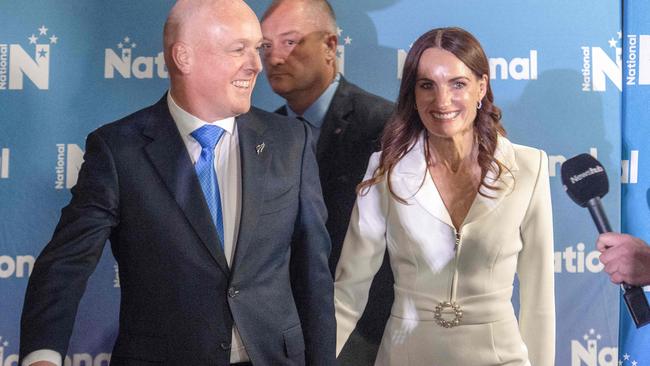
He said he had taken Mr Hipkins’ call conceding the election and he had thanked him for serving NZ.
“I wished him well because it’s obviously a tough night for Labour,” he said.
Significantly, Mr Luxon opened the door to Mr Peters, after the NZ First leader said earlier that he was willing to “help”.
“I appreciated Winston Peters’ remarks tonight that he was here to help,” he said.
Mr Seymour, who had brought his party back from near death to a triumphant return in 2020, told supporters: “This country has voted for change and a record number have voted for real change.”
National led Labour from the start, with early exit polls showing it was taking more than 40 per cent of the vote while Labour remained stuck in the mid to late 20s.
The mood at Labour’s election night event was not so much sombre as resigned as the numbers flowing through indicated loss after loss.
The results were so devastating for Labour that even former prime minister Jacinda Ardern’s seat of Mt Albert - which Labour has held since 1946 - lookd to be swept away by the National wave, in the most symbolic - and morale crushing - blow of the night.
Among major seats lost was that of Foreign Minister Nanaia Mahuta, one of the longest serving MPs, who lost to a 21 year old Te Pati Maori candidate. Michael Wood, who only 10 months ago was seen as a leadership contender, also looked set to lose his seat.
Relatively early in the evening Labour MP Chris O’Connor, who looked set to lose his seat of Ohariu to National deputy leader Nicola Willis, admitted he expected Labour’s defeat. “I don’t think anyone watching this tonight is going to be surprised,” he said.
A clearly downcast Grant Robertson, the Finance Minister, admitted: “The time for the change narrative is always very hard to fight.”
Mr Hipkins, 45, who has served only 10 months as Prime Minister, is set to join only a handful of New Zealand prime ministers who have served under a year in the role.
The defeat will give Labour under Dame Jacinda and her successor the dubious honour of becoming the first two term government since the first MMP election in 1996.
Mr Hipkins, who succeeded Dame Jacinda in January when she unexpectedly stood down, was personally popular - even among rival MPs - but failed to take his party’s approval rating back to the heights it enjoyed under his predecessor.
After a short honeymoon period, when he took Labour to an optimistic 40 per cent in the polls by ditching Ardern’s most progressive policies, the party’s favourability dropped to the fatal mid-20s, from where it failed to recover.
The damage done to Labour by its extreme anti-Covid measures in the latter stages of the pandemic - including a long lockdown of Auckland, the country’s biggest city, as well as its failure to live up to campaign promises dating back to 2020, in the end looked to prove fatal.
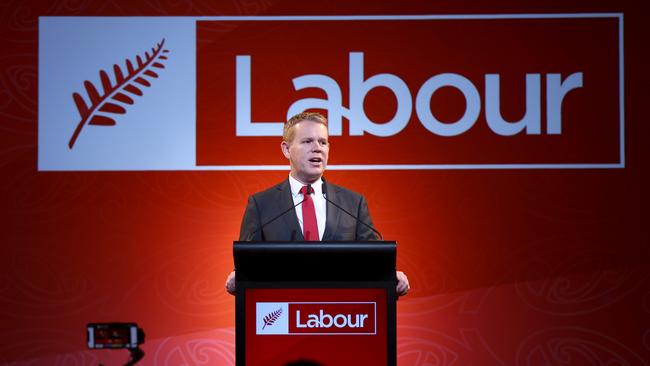
Even a late appearance by Dame Jacinda, who pleaded with supporters on social media to return her party to government to “finish the job” wasn’t enough to save Labour.
Not even her renowned charm could lift the electorate’s disappointment that her government had delivered on so few of its promises dating back to the 2020 election.
Mr Luxon will now spend potentially weeks in negotiations not just with Mr Seymour, his preferred coalition partner, but Mr Peters.
Mr Luxon, the former CEO of Air New Zealand and Mr Hipkins campaigned on broadly similar policies; both vowed to tackle poverty, the rising crime rate and a broken health system.
But Mr Luxon’s vow of government competence and responsible economic management – in particular helping the “squeezed middle”, persuaded the voters. Even independent economists refuting a key campaign promise – National’s controversial foreign buyers’ tax of 15 per cent on properties over $2m to help pay for $15bn of tax cuts – did no long term damage, with voters appearing to hear only “tax cuts” and throwing their support behind the right bloc.
Amid a worsening cost of living crisis, news that food prices had risen 8 per cent in the year to September was a final blow for Labour – particularly when deputy National leader Nicola Willis pointed out two days before the election that this meant a 30 per cent increase in food prices since Labour first came to power in 2017.
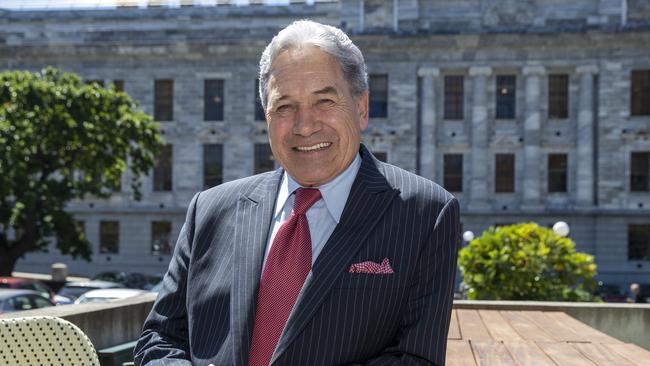
Much of the campaign has been toxic, both sides accusing each other of racism amid deepening divisions on race lines, with issues such as shared governance with unelected Maori Iwi (tribes) at local and national levels and even the interpretation of NZ’s founding document, the Treaty of Waitangi, coming to the forefront.
The debate was damaging for the left bloc; Ardern’s and Hipkin’s government was blamed for an unpopular pivot to all things Maori, from co-governance to the spread of the Maori language in public life.
It wasn’t all plain sailing for National however, particularly in the last fortnight, when the likelihood of a resounding win appeared to drift away from Mr Luxon. The National Party leader’s admission that he would pick up the phone to Mr Peters if a National/ACT coalition couldn’t get over the line was seen as a strategic blunder, sending votes the way of NZ First rather than the right bloc.
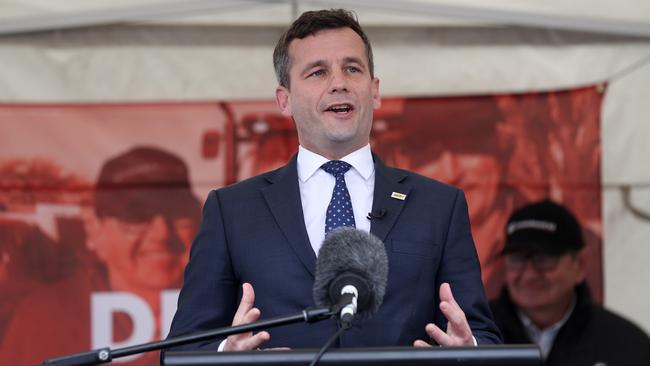
Apparently spooked by his party’s fall from its highs of 14 per cent to below 10 per cent, on the eve of the election Mr Seymour went as far as conceding that he would give up cabinet seats to NZ First if it meant securing better policy.
That possibility may still come to pass as negotiations continue.
Outside the Labour party’s event a security guard, who didn’t want to be named, looked near to tears.
“I’ve always voted Labour,” he said. “I really thought Chris would pull it off.”


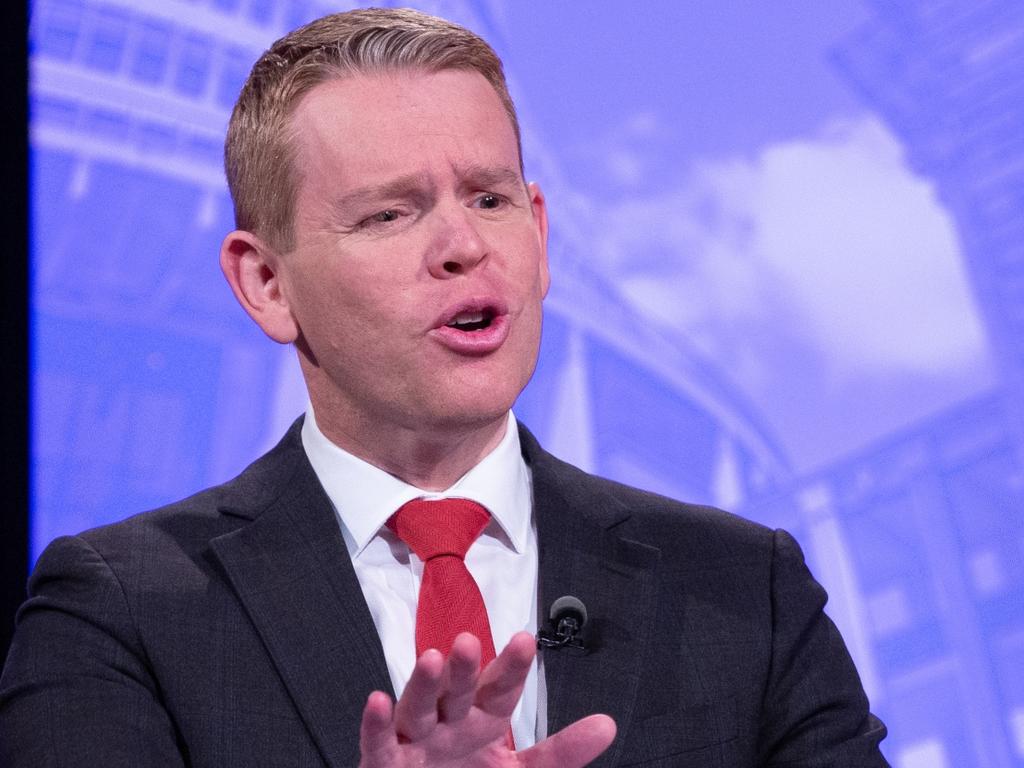
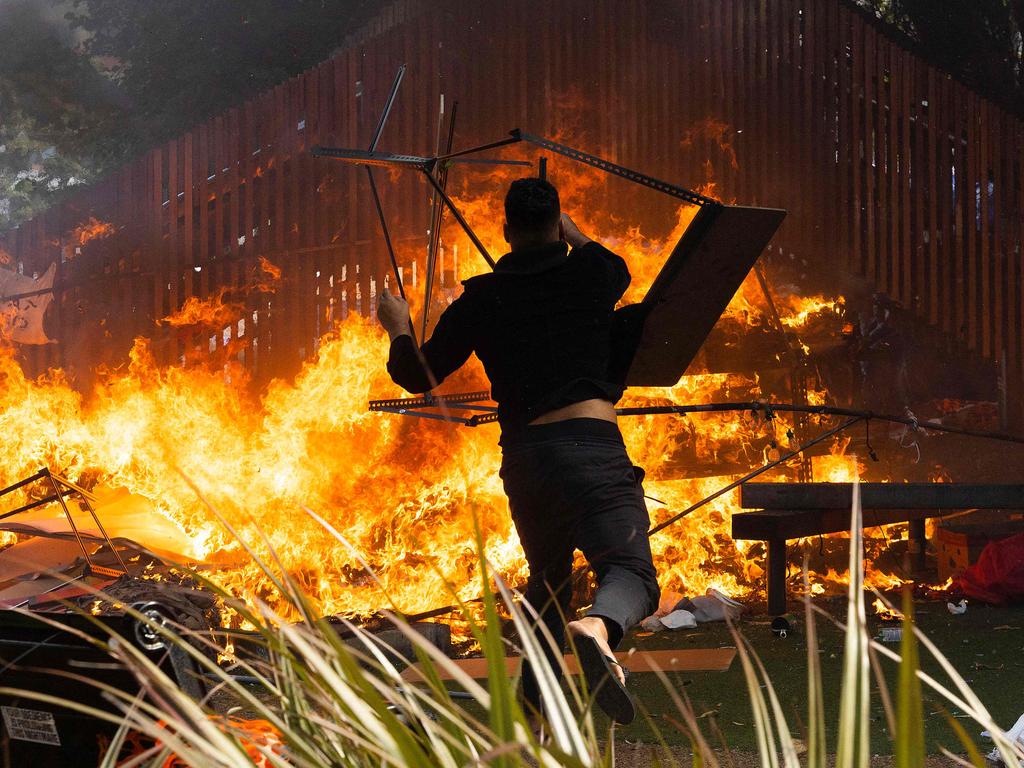
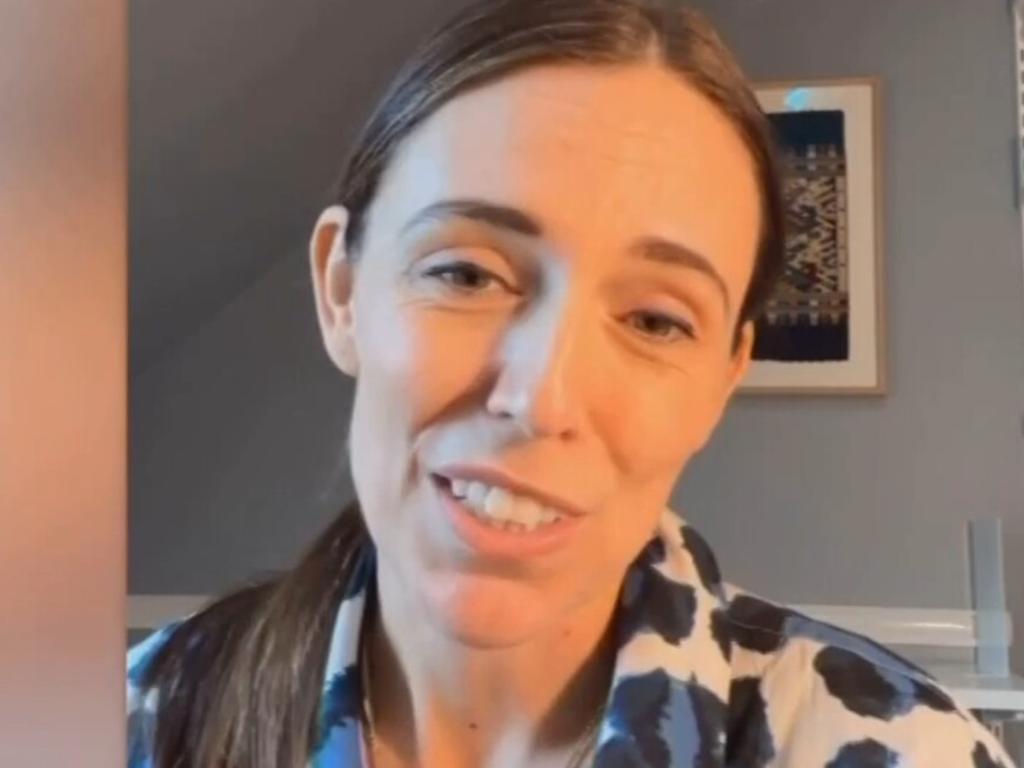
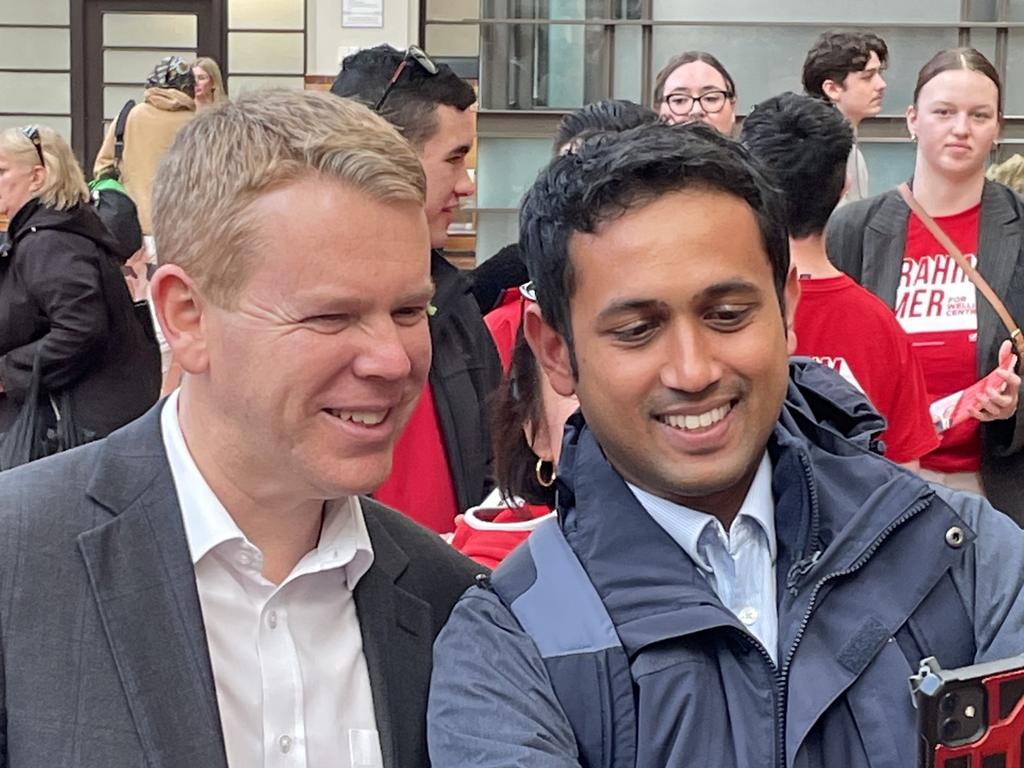


To join the conversation, please log in. Don't have an account? Register
Join the conversation, you are commenting as Logout